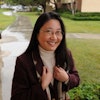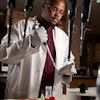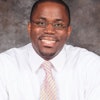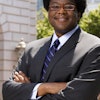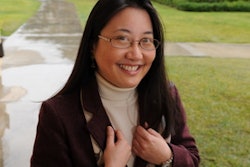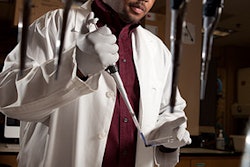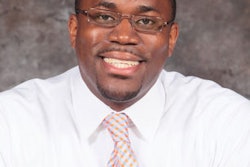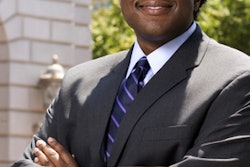Back in 1991, Geanncarlo Lugo-Villarino was working in a shoe store. Growing up poor in Mexico, he had a shaky grasp of English and graduated from high school in San Diego with a 2.7 average. He seemed destined for a less than stellar future.
A co-worker talked to him. He had to go back to school, she said, or he would end up like her: stuck in a dead-end job. Today, Lugo is a rising scientist and is “someone to watch,” as a former mentor puts it.
At 38, he has a Ph.D. from Harvard University in immunology and a lengthy list of peer-reviewed publications and fellowships, awards, scholarships and other honors.
He is now in Toulouse, France, doing postdoctoral research on tuberculosis at Centre National de la Recherche Scientifique, the equivalent of the National Institutes of Health in the states. But he also has done research at the Scripps Research Institute, Yale, NIH, Harvard and the University of California at San Diego.
He has gone from being an insecure youth who thought he couldn’t get very far to a mentor of other young students and scientists.
Those who have seen Lugo blossom say his intelligence and appetite for knowledge and hard work have led him to where he is today.
But Lugo says he couldn’t have achieved anything without help. “I am the product of good intentions, nurturing and a lot of care,” he says.
Lugo became passionate about science after he enrolled at Southwestern College, a two-year institution in Chula Vista, Calif., and took a class in animal behavior.
He took one assignment and expanded it, observing a chimpanzee at the San Diego zoo for three months, poring over materials in the zoo library and turning in a 30-page report.
Impressed, his professor introduced Lugo around, and he was offered an NIH Bridges to the Future fellowship. He became one of the first students chosen for the Bridges to the Baccalaureate program at San Diego State University.
The program assigned mentors to the students and exposed them to university-level courses, scientific conferences and laboratories, Lugo says.
He stood out because he was so interested in everything, according to Dr. Cathie Atkins, associate dean of the SDSU College of Sciences, who had him in her ethics class.
“Everyone who met him was struck by him,” she says. “Not only is he smart, but he’s also an incredible human being — one of those people you meet; you know he’s going to make a difference in the world.”
After enrolling at SDSU, Lugo received the opportunity to conduct research — his mentor in SDSU’s bridges program and a scientist at the Scripps Research Institute in La Jolla, Calif., both had sons in the Cub Scouts and ended up talking. The scientist, Dr. Ann Feeney, had a vacancy for a student in her lab, and Lugo’s mentor, Maureen Gibbins, suggested Lugo.
Lugo did research on DNA in Navajo Indians, who are susceptible to Hib, or Haemophilus influenzae type b, and other genetic issues.
But he wanted to know everything the lab was working on. “He functioned more like a graduate student,” Feeney recalls. He has an outgoing personality so everyone gets to know him, she says.
While at SDSU, Lugo had five research papers published — unheard of for an undergraduate. He went on to do work related to T cells, a type of white cell, at Yale and NIH and received his Ph.D. from Harvard in 2006. He also did postdoctoral research in San Diego.
While progressing in his career, Lugo has given many talks at campuses and mentored students in a formal and informal way.
Brought up by his mother and grandmother, he is especially interested in helping women achieve in science.
“I’ve had so many mentors,” he says. “I made the decision I wanted to be doing for young people what they did for me.”
Title: Postdoctoral fellow, Institut de Pharmacologie et de Biologie Structurale, Toulouse, France
Education: Ph.D., immunology, Harvard University; B.S., cellular and molecular biology, San Diego State University; A.S., Southwestern College
Age: 38
Career Mentors: Olivier Neyrolles, Le Centre National de la Recherche Scientifique; David Traver, University of California, San Diego; Laurie Glimcher, Harvard; Ann Feeney, Scripps Institute; Maureen Gibbins, San Diego State University
Advice for new or budding faculty: “Mentor: Someone whose hindsight can become a student’s foresight.”

